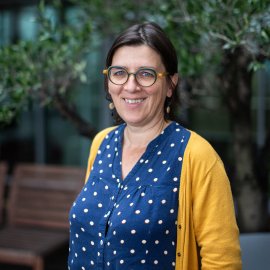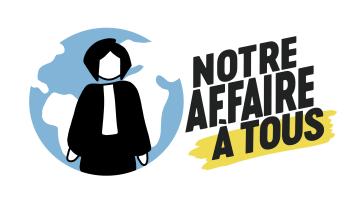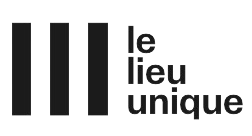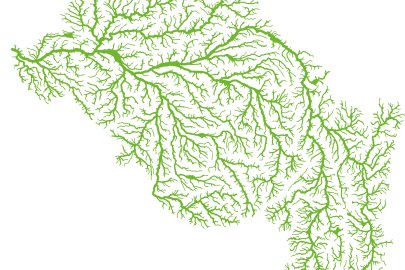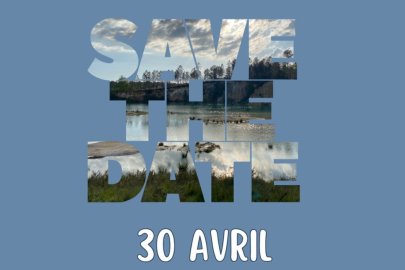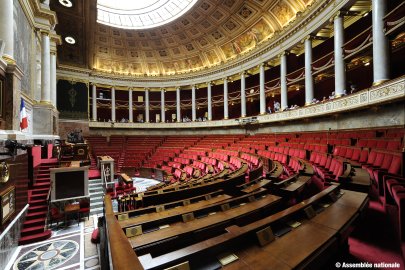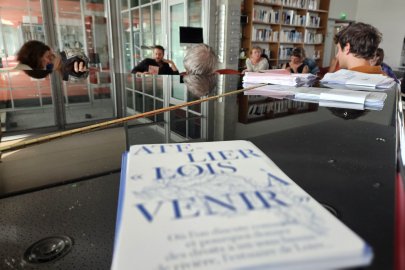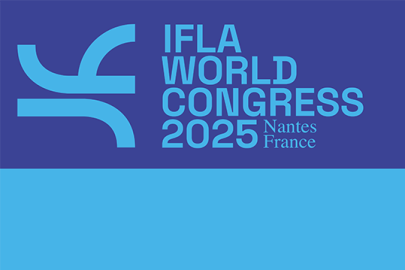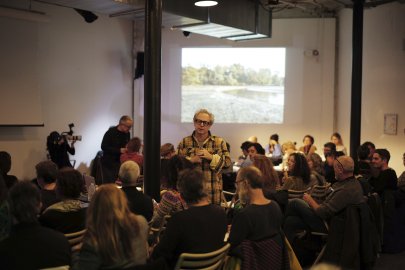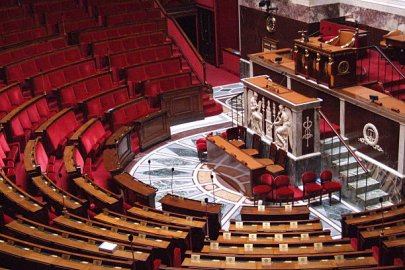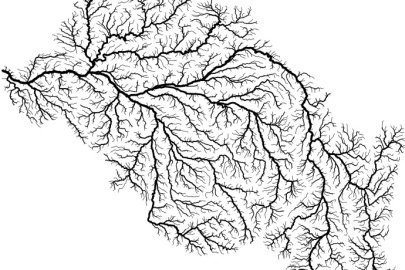How can “Loire” and its watershed become a subject of rights, a “person” rather than a “thing,” so that the river can defend its values, its future? How can we grant rights to natural entities, habitats, and places of attachment? How can French law be redefined to align with the “rights of nature”?
By participating in - or organizing - “laws to come” workshops, you can engage with these questions and many others.
Crédits photo Anne-Marie Filaire 30 avril 2025 à l'Assemblée Nationale
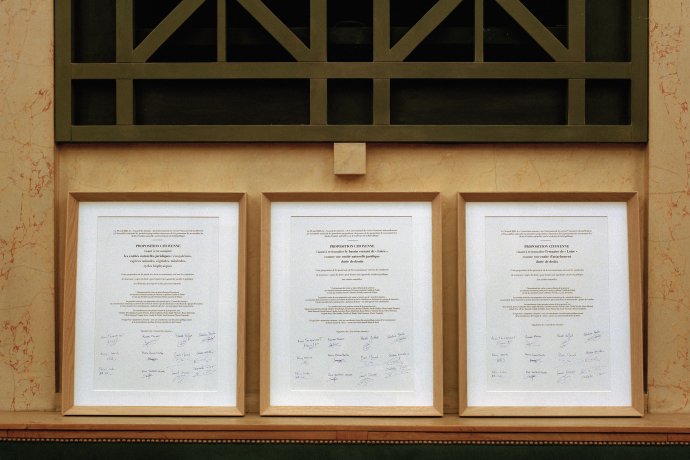
Using Card Games to Debate Future Laws
In a “laws to come” workshop, participants are invited to engage through a unique card game. The cards represent elements of a “law to come”—for instance, a law envisioning a world where natural entities are legally recognized as “subjects of rights.”
The workshop’s goal is to work through the deck by debating the propositions within a limited timeframe (1h30 to 2h).
If you wish to organize a workshop, please contact loi-a-venir@iea-nantes.fr
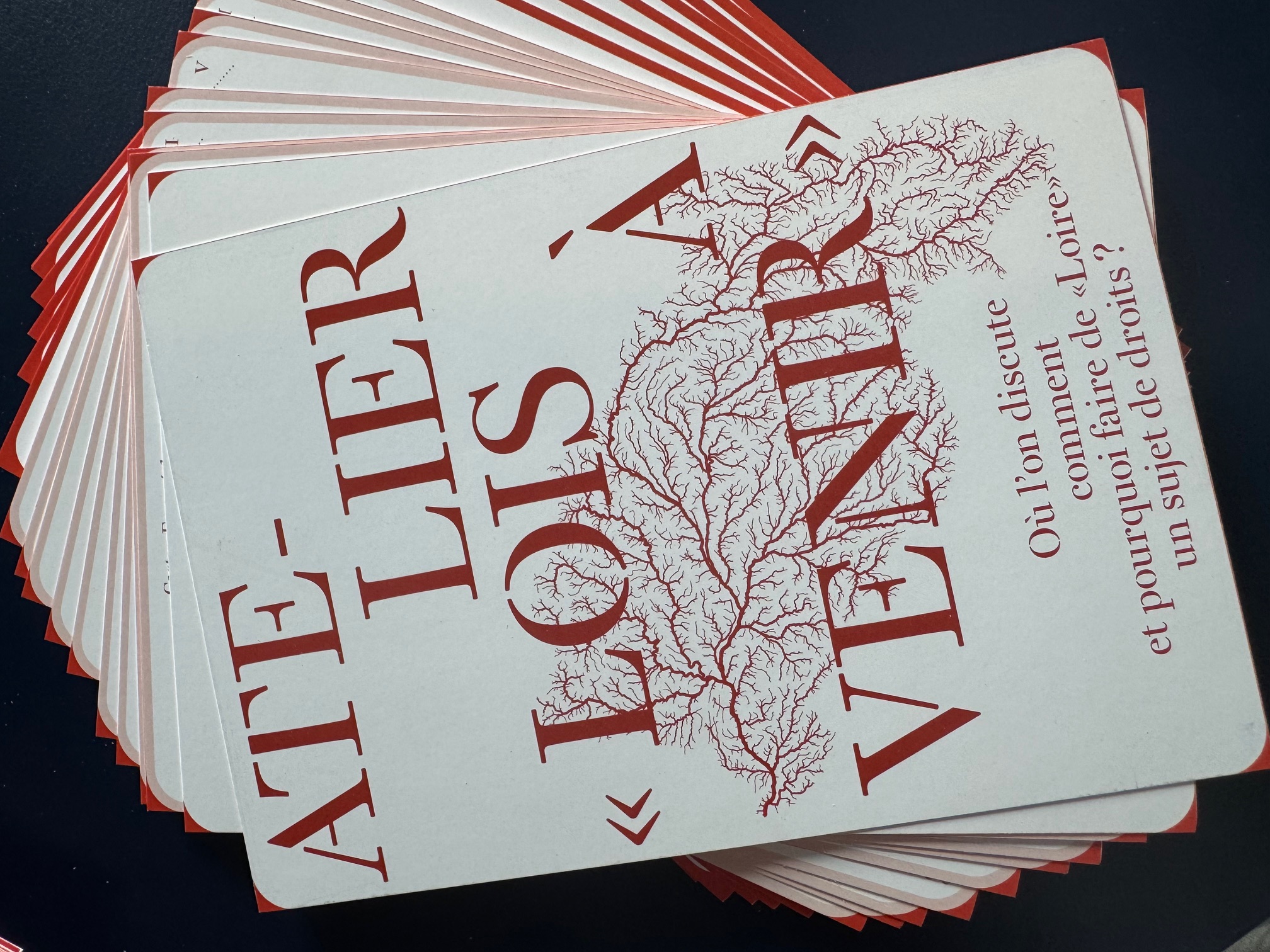
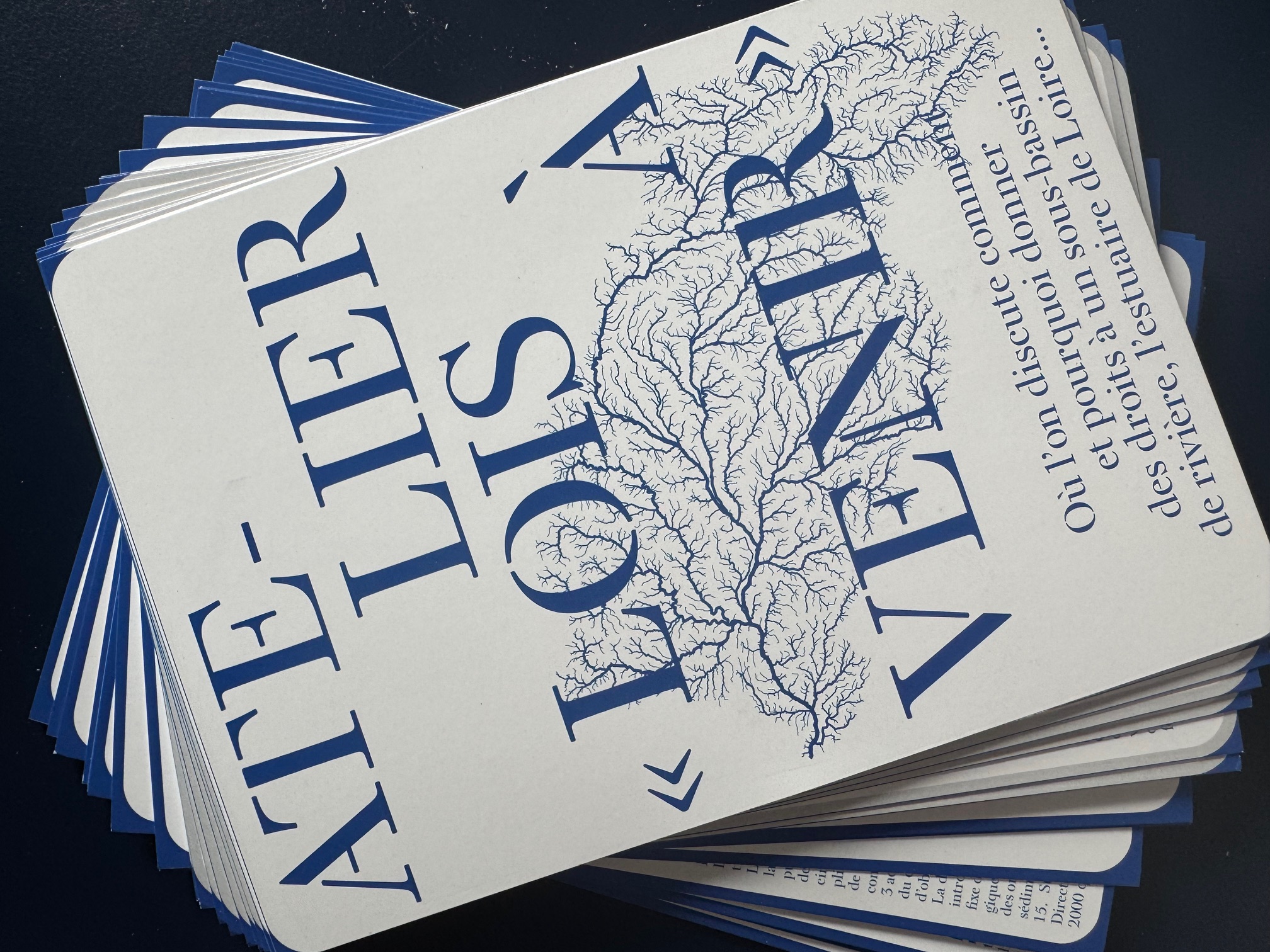
crédit photos : Camille de Toledo
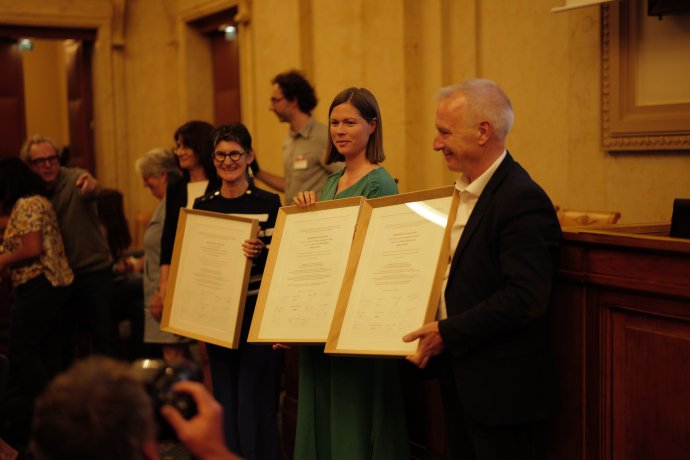
Le 30 avril 2025, les député.e.s Charles Fournier, Lisa Belluco et Chantal Jourdan à l'Assemblée nationale, Salle Colbert, recevant les « lois à venir" (Crédits photos Anne-Marie Filaire).
Origins of the Card Games for the Workshops
Where do these card games come from? They stem from a research project led by artist-writer Camille de Toledo, who is an associate member of the IAS Nantes, as part of the “Vers une internationale des rivières” project.
The games translate citizen-proposed laws—developed through a collaborative process involving researchers across disciplines (earth sciences, hydrology, history, law, philosophy) and a citizen council called the “witnesses’ council”—into card format.
These “laws to come” were presented at the National Assembly, Salle Colbert, on April 30, 2025, to three members of parliament (Charles Fournier, Lisa Belluco, and Chantal Jourdan), with the hope that they might one day be debated and adopted.
Because the goal is to revive futures imaginaries through alliances between research and civil society—and because classical political institutions struggle to envision the future and get lost in increasingly raw and sterile debates—we have decided not to stop there.
We are calling on collective intelligence and shared desires for transformation by proposing these “laws to come” in workshop form to help prepare for these metamorphoses.
After publication, these proposals were converted into cards, so that anyone interested in legal or societal transformation might hold them, discuss them, and use them in professional, familial, or activist environments. The idea is to foster a new vision: one in which natural entities become “subjects of rights.”
What Happens in a “Laws to Come” Workshop?
Duration: 1h30 to 2h for a session with a single card deck.
Objective: participants read the cards aloud and collectively reflect on the proposed transformations.
To facilitate discussion, it is recommended to form groups of 6 to 10 people. If there are more participants, multiple groups may be organized.
Each workshop is led by an ambassador of the “law to come”—someone familiar with the process of drafting these proposals and trained for this role. They are accompanied by a resource person, whose role is to read aloud the notes attached to the cards and reference documents to enrich the discussion.
Types of cards included in each deck
- Instruction cards: introduce the game and explain how to use the cards to structure the workshop.
- “Exposé of motives” cards: provide context and rationale for each proposed law.
- “Law to come” cards: detail the proposed new subjects of rights, their rights and obligations, governance mechanisms, funding, and implementation modalities.
- Historical cards: conclude the deck by tracing the evolution and genesis of the proposed laws.
How the workshop proceeds
- Beforehand, participants receive the “exposé of motives” cards to familiarize themselves with the context.
- At the start, the ambassador welcomes participants and explains the session flow.
- A participant reads aloud a set of cards from the first theme.
- Discussion follows: comprehension, objections, implementation suggestions, and contributions from the resource person (with notes and references).
- Another participant then reads the next theme, and so on until all cards are covered.
- After each reading (no more than 3 cards per turn), discussion restarts.
The ambassador is not in a hierarchical position—they do not seek to resolve all objections but facilitate discussion.
Interested in Organizing a Workshop?
To host a “laws to come” workshop, please send us an email to loi-a-venir@iea-nantes.fr
In your message, include the location, date, hours, and context of your event.
To maintain a peaceful public debate and avoid the violence of social media platforms, we request that these card games not be shared on social networks. We also encourage holding these workshops in an atmosphere of benevolence and respect for divergent perspectives.
Important: These card games are currently in testing form. Feedback is welcome via email. We rely on your goodwill and spirit of sharing.
The card games presented here have been developed with public funding and are made available as transformation tools for communities wanting to imagine and accompany change.
Together, they contribute to a public service of the imagination.
Follow Us on Social Media
Instagram: @internationaledesrivieres
LinkedIn: Vers une internationale des rivières
